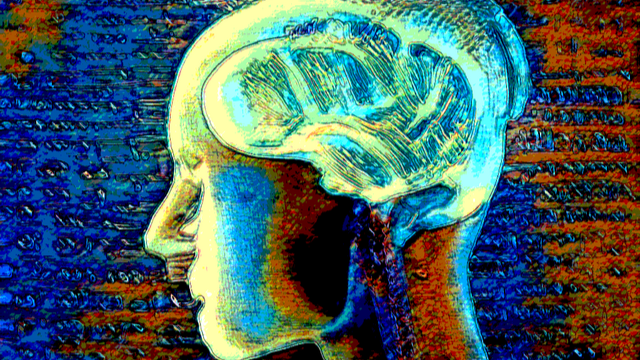Since ChatGPT and other artificial intelligence platforms first debuted, news portals have been full of articles trying to interpret the impact of new AI developments.1 These developments often arouse fear and curiosity and have sparked debates among politicians, celebrities, and business people. From simple social media posts to large-scale petitions calling for a six-month pause on AI development, the world has been captivated by the potential of AI.
There have been reports on investigations into absurd scandals such as the Google Gemini-generated image of Nazi-era German soldiers being racialized.2 While these issues may seem arbitrary, their absurdity also highlights how artificial intelligence, often referred to as the ‘higher scientific machine’, is shaping social perceptions. It generates images, information, and much more without control, with almost zero regulation.3
Given the uncontrollable nature of AI and its potential to shape social perception, legislative action in this area has been long awaited.
The European Union, recognizing the urgency and importance of this issue, has been at the forefront with its recently adopted Artificial Intelligence Act.
While this legislation has received an ambivalent reception from both sides, with some praising its efforts to regulate AI and others criticizing its potential impact on innovation, it is worth keeping an eye on the EU’s digital legislation for politicians and entrepreneurs alike. That is why the EU is a leading force in such digital legal developments.4 This article aims to explore the philosophical significance of artificial intelligence and the future that the EU AI Act proposes for businesses, member states, and other international actors.
While 800 years ago the existence of artificial intelligence or modern technology was unknown, many thinkers were fascinated by the idea of a higher, mechanical source of knowledge and guidance. This fascination with AI is not a recent phenomenon.5 One of the most prominent medieval philosophers, Roger Bacon, foresaw the creation of such intelligent machines, too. ‘The extraordinary advantage in this world from these three sciences against the enemies of the faithful of the Church is obvious; her enemies should be destroyed by the efforts of enlightened wisdom rather than engaged with soldiers’ weapons.’6 This quote from Roger Bacon highlights his belief in the power of science in overcoming societal challenges, a belief that is still relevant in the context of AI today.7
Although at first sight science may not seem the most obvious source of political power, Roger Bacon’s ideas shed light on the narrative-generating power of science in society.8 For Bacon, the pursuit of a higher science leading to spiritual awakening and the destruction of the enemy, as well as of enlightened wisdom (opera sapientiae), offered a path to superior knowledge of God and worldly domination.9 The vision of a scientific entity ruling over all also proposes a social context in which this entity can function and create.
Surprisingly, it was not only Christian medieval philosophers who were fascinated by the idea of robust scientific creation and development, but later left-wing philosophers such as Marx and Engels also followed this idea. Marx believed that each successive scientific paradigm would come closer to the ‘truth’ than the other.10 The existence and wider availability of artificial intelligence allow us to test these ideas.
Although the vision of an evil superintelligence is far from reality, policymakers should be more cautious about over-optimistic views on AI.
Currently, there is ambiguity surrounding AI and other forms of large language models (LLM). With many policymakers and international organizations such as the OECD confident in its positive effects, and investors continuing to pump money into AI businesses, we are left alone with multiple concerns about AI.11
In 2024 the European Union finally introduced its first Artificial Intelligence Act.12 While its effects are subject to debate, its creation highlights the heterogeneity of perceptions and approaches to AI governance. The general appreciation of Member States has been for a risk-based regulatory framework for AI, focusing on the potential risks and benefits of AI applications. However, Emmanuel Macron and businesses have been strongly opposed to such regulation. Fearing a weakening of the EU’s freedom of businesses and innovations, the AI Act could risk discouraging new tech companies and prompt them to pursue their activities in the US or other less regulated countries.13 However, the EU could be the first regulator to set global standards for AI development, setting regulatory boundaries before the US or any other country or institution does so.
The EU AI Act is a major milestone in the global effort to set ethical standards and guidelines for the development and application of AI technologies. While the EU AI Act might strengthen Europe’s strategic presence in AI markets as a global first, it is also essential to consider the ‘Brussels effect’.14 This term describes the EU’s ability to influence global regulation through its own standards. The Brussels effect is a double-edged sword: it can hinder the EU’s competitiveness and lead to a lost competitive race against the leadership of China and the US.
1 Alla Polishchuk, ‘AI Poses Risks to Both Authoritarian and Democratic Politics’, Wilson Center, www.wilsoncenter.org, 26 January 2024, https://www.wilsoncenter.org/blog-post/ai-poses-risks-both-authoritarian-and-democratic-politics.
2 Nico Grant, ‘Google Chatbot’s A.I. Images Put People of Color in Nazi-Era Uniforms’, The New York Times, 22 February 2024, sec. Technology, https://www.nytimes.com/2024/02/22/technology/google-gemini-german-uniforms.html.
3 Ibid.
4 Anu Bradford, ‘Europe’s Digital Constitution’, Verfassungsblog, 6 September 2023, https://doi.org/10.17176/20230906-062847-0.
5 Selmer Bringsjord and Naveen Sundar Govindarajulu, ‘Artificial Intelligence’, Stanford Encyclopedia of Philosophy, 2018, https://plato.stanford.edu/entries/artificial-intelligence/.
6 Elly Truitt, ‘Knowledge and Power: Courtly Science and Political Utility in the Work of Roger Bacon’, Revista Española de Filosofía Medieval 28, no 1 (February 25, 2022): 99–123, https://doi.org/10.21071/refime.v28i1.14032.
7 Ibid.
8 Ibid.
9 Ibid.
10 Richard Harvey Brown and Elizabeth L. Malone, ‘Reason, Politics, and the Politics of Truth: How Science Is Both Autonomous and Dependent’, Sociological Theory 22, no 1 (2004): 106–22, https://www.jstor.org/stable/3648961?seq=3.
11 Christina Pazzanese, ‘Ethical Concerns Mount as AI Takes Bigger Decision-Making Role’, Harvard Gazette (Harvard University, 26 October 2020), https://news.harvard.edu/gazette/story/2020/10/ethical-concerns-mount-as-ai-takes-bigger-decision-making-role/.
12 European Commission, ‘Regulatory Framework on AI | Shaping Europe’s Digital Future’, digital-strategy.ec.europa.eu, 6 March 2024, https://digital-strategy.ec.europa.eu/en/policies/regulatory-framework-ai.
13 Anu Bradford, ‘Europe’s Digital Constitution’, Verfassungsblog, September 6, 2023, https://doi.org/10.17176/20230906-062847-0.
14 Ibid.








